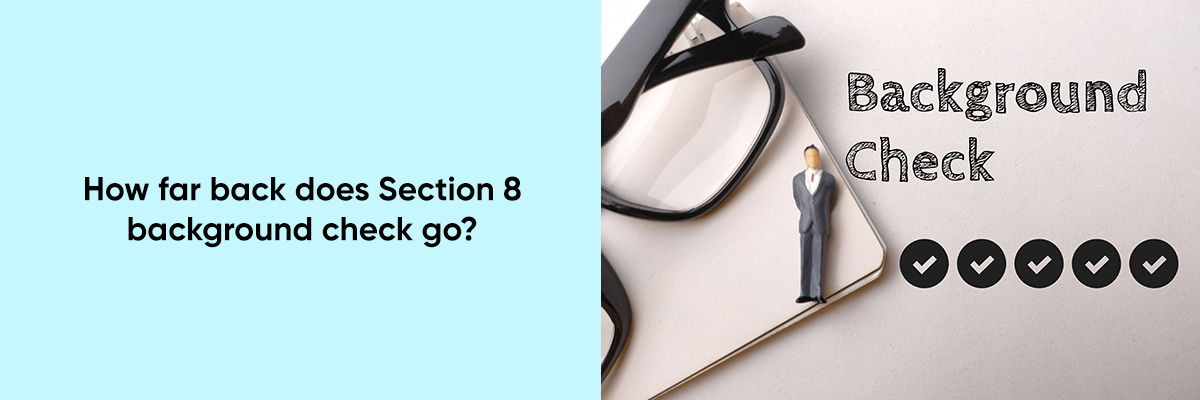When applying for Section 8 housing, which provides rental assistance through the U.S. Department of Housing and Urban Development (HUD), applicants must undergo a background check. The background check covers several key aspects, including criminal history, rental history, and financial stability.



The extent and look-back period for a Section 8 background check can vary, but here’s a general breakdown of how far back it may go:
1. Criminal History
HUD has specific guidelines for criminal background checks when determining eligibility for Section 8 housing. These checks typically look for any history of criminal activity that could affect the safety and well-being of other tenants. The duration that criminal history is reviewed may vary depending on the nature of the crime:
- Permanent Disqualification: Certain offenses may permanently disqualify individuals from Section 8 housing. For example:
- Lifetime sex offender registration: Individuals on the lifetime sex offender registry are ineligible for Section 8.
- Manufacturing or production of methamphetamine: Applicants convicted of methamphetamine production in federally assisted housing are permanently disqualified.
- Other Criminal Convictions: For other crimes, the look-back period may vary, but it typically includes:
- Drug-related criminal activity: This could lead to ineligibility, often for a period of 3 to 5 years after the conviction or incarceration, depending on the severity of the offense.
- Violent criminal activity: Similar to drug-related offenses, violent crime convictions may result in disqualification for a period of time, usually up to 5 years.
- Other criminal activity: Non-violent offenses may still be considered, and the local public housing authority (PHA) may use discretion in determining the applicant’s risk.
Each PHA has some flexibility in how they apply HUD’s guidelines, so the specific look-back period for criminal offenses may vary depending on the housing authority.
2. Eviction History
The Section 8 background check will also assess rental history, particularly looking for any evictions due to:
- Failure to pay rent
- Property damage
- Criminal activity while renting
Generally, eviction history is reviewed over the last 3 to 5 years, though some housing authorities may go back further. If an applicant has been evicted from federally assisted housing for drug-related criminal activity, they may be ineligible for Section 8 for up to 3 years following the eviction.
3. Credit and Financial History
Though Section 8 primarily focuses on income verification to determine eligibility, some PHAs may also conduct a soft check on the applicant’s financial history. This is typically to assess whether the applicant has a history of unpaid debts, especially to previous landlords or utility companies.
The look-back period for credit checks may extend 5 to 7 years, but financial issues like bankruptcy or poor credit are not automatic disqualifiers. The PHA is more concerned with whether the applicant can afford their portion of the rent under the Section 8 program.
4. Consideration of Mitigating Circumstances
While Section 8 background checks are thorough, PHAs are required to consider mitigating circumstances, especially for individuals who have turned their lives around after past criminal or financial difficulties. For example:
- Evidence of rehabilitation, such as completing a substance abuse treatment program, may allow an individual with a prior drug-related conviction to become eligible.
- Some PHAs also allow applicants to explain their criminal history or evictions and present proof of improvements in behavior.
Conclusion
The look-back period for a Section 8 background check typically spans 3 to 7 years, depending on the type of information being reviewed. Criminal convictions, particularly for drug-related or violent offenses, may result in ineligibility for up to 5 years, while evictions due to criminal activity can lead to a 3-year ineligibility period. However, certain crimes, like meth production or sex offender registration, result in a lifetime ban. Each PHA has some discretion in how they apply HUD’s rules, so specific time frames can vary across different regions.


